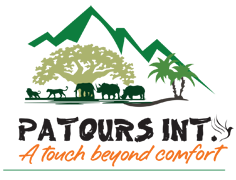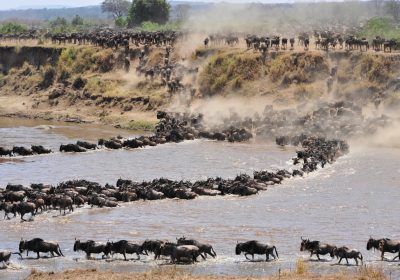Back
EN / USD
Language
Currencies

Rwanda
Rwanda is one of Africa’s most enchanting destinations, known for its lush green landscapes, rich culture, and unforgettable wildlife experiences. Home to the world-famous mountain gorilla trekking in Volcanoes National Park, Rwanda offers travelers the rare chance to see these gentle giants up close. Beyond gorillas, visitors can enjoy scenic safaris in Akagera National Park, chimpanzee tracking in Nyungwe Forest, and relaxation by the beautiful Lake Kivu. With its welcoming people, safe environment, and year-round travel opportunities, Rwanda is the perfect destination for an authentic African safari holiday.
1 tour in Rwanda
Showing 1 – 1 of 1 tours found
FAQ’s about Rwanda
Have more questions? Contact us.
Do I need a visa and passport to enter Rwanda?
Visitors need a valid passport with at least six months of remaining validity. Many nationalities can obtain a visa on arrival or apply online for an e-Visa. Rwanda also participates in the East Africa Tourist Visa (EATV), allowing travel across Rwanda, Uganda, and Kenya with one visa.
What vaccinations and health precautions are required?
A Yellow Fever vaccination certificate is required if you're arriving from a country with risk of yellow fever. Vaccinations for typhoid, hepatitis A/B, and routine immunizations are advised. It’s also recommended to take malaria prophylactics when visiting certain regions, and to bring insect repellent and bottled water.
When is the best time to visit Rwanda?
The dry seasons, typically June to September and December to February, are the most popular times for gorilla trekking and outdoor activities, as trails are less muddy and conditions are more favorable.
What are the entry requirements for gorilla trekking?
Gorilla trekking requires a permit, which is limited and must be booked well in advance. The experience takes place in Volcanoes National Park, and participants must follow park guidelines to ensure minimal disturbance to the gorillas and their habitat.
Is Rwanda safe for tourists?
Yes—Rwanda is widely regarded as one of the safest travel destinations in Africa. Petty crime is rare, but it’s still wise to avoid walking alone at night, keep valuables secure, and follow any local advisories.
What currency is used, and are credit cards accepted?
The Rwandan Franc (RWF) is the local currency. US dollars are also widely accepted at tourist facilities. Credit cards are accepted in many hotels and lodges, but it’s best to carry cash—especially in rural areas where card acceptance may be limited.
What languages are spoken in Rwanda?
Rwanda has four official languages: Kinyarwanda, English, French, and Swahili. Kinyarwanda is the most widely spoken across the country, while English and French are common in urban and tourist areas.
What should I pack for my trip?
Be prepared for changing weather and terrain: Layered clothing, including warm items for cool high-altitude areas Waterproof jacket and sturdy hiking shoes for gorilla treks Insect repellent, sunscreen, and a wide-brimmed hat Binoculars and a camera (preferably without flash) Adapters for Rwanda’s 230 V power outlets if needed
What about tipping and etiquette?
Tipping is appreciated but not mandatory. Suggested amounts range from $5–10 USD per day for guides and porters, and $10–20 USD for gorilla trekking guides. Respect local customs—dress modestly, greet people politely, and avoid bringing disposable plastics or single-use bags.
How can I get around Rwanda?
Rwanda has a well-maintained road network, especially between major cities. Services include private car hires, taxis, and public minibuses. Domestic flights are available to more remote regions, and Kigali International Airport offers good international connections.
Latest stories
Planning a family safari in Africa? Great choice! Safaris aren’t just for...
Namibia is famous for its Etosha safari, but this country offers so...
Both Tanzania’s Serengeti and Kenya’s Masai Mara are legendary safari destinations, attracting...




